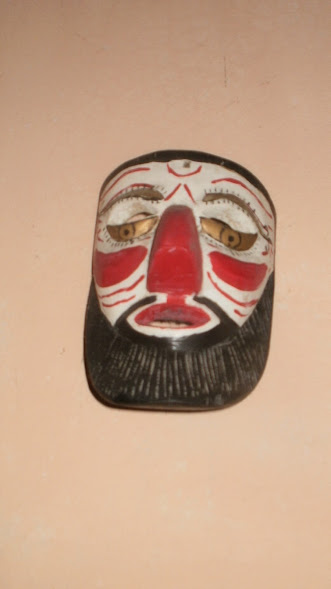La hormiga consciente Cuento
de Carlos Ponce-Meléndez

Esta maldita hoja es de
las que pesan horrores- pensó la hormiga, pero a pesar de lo pesado de la hoja
y de lo lejos que estaba de su hormiguero, la cargo y la llevo. Ya estaba
acostumbrada a ese tipo de esfuerzos, toda su vida había sido así. Todas las demás
hormigas hacían lo mismo y decían que siempre había sido así y que siempre
seria lo mismo, pero bueno, ya no hay tiempo que perder- pensó la hormiga. Hay
que ir a buscar más comida pues hay muchas bocas que necesitan alimentarse.
Ahora, habría que ir a un lugar más lejos, a pesar del tremendo calor de
verano, ya había muy pocas hojas cerca del hormiguero. Eso no amainó el ánimo
de la hormiga y partió veloz en busca de alimento. Esta vez escogió, por
consejo de otras hormigas que iban llegando, el rumbo de la casa de los
humanos. Dicha casa estaba lejos, pero recordó que había un jardín con
abundante variedad de plantas. El trabajo seria arduo, pero toda su vida había
sido así, "¿Porque temerle al trabajo si este dignifica?" en fin, iba
abstraída en sus pensamientos cuando por fin llegó al hermoso y bien cuidado
jardín de la familia Pascual. Se sintió Alegre de ver tanta variedad de plantas
pero no pudo llegar a escoger una pues sintió que perdía fuerzas, sus patas ya
no le respondían, lo último que pudo percibir fue a un humano con un aparato
que despedía un olor nauseabundo. El humano se alejó echando su pestilente
substancia por todos lados, pero la hormiga por más esfuerzos que hacía no pudo
levantarse. La desesperación se apoderó de ella, había que llevar algo al
hormiguero, cómo iba a llegar con las pinzas vacías. Pero el dolor crecía y la
hormiga solo atinaba a pensar que debía avisar a sus compañeras que ese era un
sitio mortal, que no volvieran por ahí. ¿Sera esto la muerte -se preguntó? Pero
si ella era una hormiga joven, no le tocaba morir aún. Todavía podía hacer
mucho por su reina. La desesperación se apoderaba de ella conforme perdía sus
fuerzas, aunque disminuye el dolor. Ahora si estaba segura de que eso era la
muerte, lloro y se sintió enloquecer, pero no por ella sino porque quería
vivir, quería contribuir a su comunidad, sabía que en el hormiguero había tanta
necesidad de sus servicios...Todo quedo oscuro repentinamente, sintió una paz
enorme, el dolor cesó por completo y dio paso a una sensación de bienestar
total. La oscuridad fue dando paso a una luz de colores nunca percibidos, se
sintió feliz. Por primera vez, la hormiga vio, y vio al cielo, y oyó una música
muy dulce y hermosa, se encontró en medio de flores hermosísimas, pero no tuvo
la menor intención de comerlas pues había dejado de tener cualquier indicio de
hambre, sed, ansiedad, prisa. Escucho al agua, esta provenía de un arroyo
cercano al cual nunca había dado importancia. Ahora si lo aprecio pues el agua
brillaba más que cualquier joya exótica, quiso acercarse, no le costaba ningún
trabajo moverse, sin embargo, se dio cuenta que su cuerpo se había quedado en
el mismo lugar en el que el humano la había encontrado. Podía ver a su cuerpo
hacerse pequeño pues ella se elevaba y era transportada por una fuerza
misteriosa que la mantenía serena. Ho si ahora llegaba a un lugar que nunca
había imaginado. Un ser bellísimo la recibió y le dio un lugar en un reino de
felicidad. "Pero ¿cómo es posible que yo tenga derecho a vivir en este
lugar si no soy más que un simple animalito?" preguntó la hormiga al ser
supremo que presidia en el cielo, "Quien sirve a sus semejantes tiene un
lugar conmigo " contestó el ser hermoso. "Ho, Yo pensé que este lugar
estaba reservado para entes como Roberto Pascual, tan poderoso, tan sabio”
-Dijo la hormiga. "Quienes envenena la tierra que les di, se envenenan y
envenenan a mi reino, ellos van a pagar sus culpas a un lugar del cual no
queries ni saber" -contesto el amoroso ser.


.JPG)











